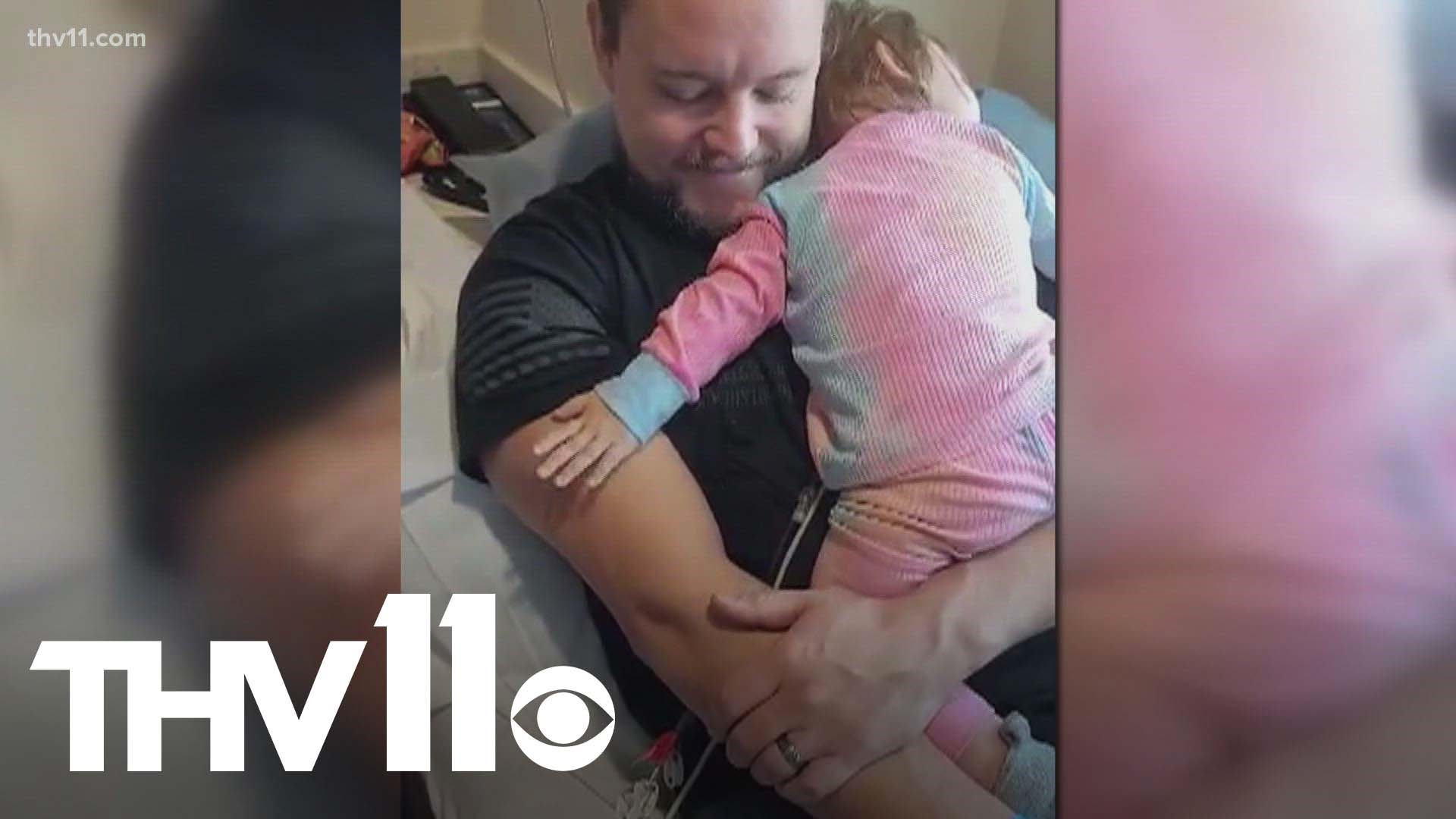HOT SPRINGS, Ark — COVID has been at center of health concerns for more than 2 years now, so much so, that it seems as though other health issues took a back seat.
These other health complications are still around and one Hot Springs family felt the impact of both.
Tiffany McConathy's 14-month-old daughter Nora was diagnosed with a rare brain cancer called embryonal tumor with multilayered rosettes or ETMR for short. On top of that, Nora also tested positive for COVID-19.
"She passed away due to a rare brain cancer called ETMR. It stands for embryonal tumor with multilayered rosettes. It's an extremely rare aggressive brain cancer," said McConathy.
Nora spent the last four months of her life going in and out of Arkansas Children's Hospital after being diagnosed with a rare brain tumor.
McConathy said that Nora first started showing symptoms in September, but was initially misdiagnosed with bell's palsy. After that, Nora's symptoms began to get worse.
"Afterwards she spent about another six weeks in a continual decline. I took her back to the hospital and she was diagnosed with metastatic brain cancer," said McConathy.
Even after Nora's passing, the spirit of the 1-year-old lives on. You can find Nora everywhere around her mother's office.
"Everyday I get chocked up looking at pictures of her, but I do it to remind myself that she's in a better place, but I'm going to work every day to honor her and to make changes," said McConathy.
As a nurse practitioner working in hematology and oncology, McConathy is aware of the different forms of brain cancer and how it can differ between adults and children. The condition that Nora had only occurs in children between the ages of 1 and 5.
Before Nora's passing, McConathy said they had to wait two weeks before they could get Nora's health treatments started as the 1-year-old wasn't a candidate for surgery or radiation due to how far the cancer had already spread.
She said her daughter would have been eligible for surgery or radiation if she was diagnosed sooner than she was.
Along with the spreading of Nora's cancer, the 1-year-old tested positive for COVID, which meant that her treatment unfortunately had to be delayed.
"Her cancer progressed [during] the four weeks that she was without treatment. So, that's ultimately why she died. The final blow to us was after her death we had requested a research autopsy due to the rarity of her cancer," said McConathy.
After requesting the research autopsy, McConathy was told that those with the hospital were unable to perform it due to Nora having COVID so recently before her death.
The family called around to other hospitals as well, but they all said no.
"We did find out that the state crime lab could have done the autopsy and would have done the autopsy for us. It would have been something we'd pay for out of our pocket."
McConathy said the family was willing to pay the money, but that it was too late as Nora's loved ones had already said goodbye to the 1-year-old.
Following their daughter's death, the family wants ensure changes are made.
"It makes me wonder how many other cancers or other disease processes aren't being learned about and treated because somebody tested positive for COVID," said McConathy.
The family plans on starting an organization called 'Princess Nora' in honor of her their late daughter.

